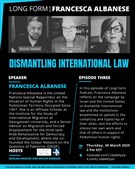[The following is part of a series of email reports from Jadaliyya affiliates in Manama. They will be updated regularly to reflect the latest developments in Bahrain.]
Friday March 11, 2011
Ahead of a protest march to the King`s Court in Riffa today (where most of the royal family live), tensions are high. For reasons of pragmatism or principle, many protesters have decided not to join the rally, but hundreds (at least) have already gathered. On the pro-government side, the rhetoric of "mob mentality" has increased significantly on internet social forums, and spilled onto the streets last night. Gangs of youths targeted and forced the shut-down of a number of American franchises owned by a prominent Bahraini Shia family, sticking pictures of the royal family and signs reading "boycott terrorist supporter" on the doors.
Incidents of civilian violence have been on the rise, inlcuding reports of more clashes between naturalised Bahrainis and locals at a girls` school on Thursday, in which the parents of the girls reportedly became involved.
Shaykh Ali Salman, a popular member of the opposition group al-Wefaq National Islamic Party, has called for joint Sunni-Shia Friday prayers at the al-Fateh mosque in Juffair, ostensibly to quell rising sectarianism.
Earlier in the week, protesters were alleged to have harassed a female driver by surrounding her car and chanting after she reportedly drove into a crowd--causing mild injuries to two--shouting and spitting on protesters outside the Bahrain Financial Harbour. The same night, thousands of men gathered around the woman`s house in Busaiteen, reportedly to protect her from reprisals.
Public figures have been stoking fear, with former opposition member and current figurehead of the new pro-government "National Unity" movement Abdullatif al-Mahmood reportedly saying: "Citizens of Riffa be prepared to defend yourselves, but do not provoke an attack on the protesters." Even worse is the incitement of sectarian and racial hatred. In a speech given by former MP Mohammed Khalid (part of a Salafi bloc), Khalid refered to the Pearl Roundabout as place for "mut`ah" [temporary marriage] and of "filth," and referred to released Shia prisoners as "monkeys." He also said that because of the government and police`s lack of action against protesters, the "ahl al-Sunnah" [Sunni community] will have to take care of themselves to stop "them" from "building a maatam in between every house." Apart from the general insulting and mocking of the Baharna (Shia Bahraini Arab), MP Khalid also made inflammatory remarks in which he claimed to have seen injuries caused by protesters to riot police when the latter stormed the Pearl Roundabout and four civilians were killed. In this context, he asked his audience, "if they could do this to a security man, then what would they do to you and our sisters?"
Meanwshile, Al Jazeera has released a powerful short documentary as part of its "People and Power" programme, which follows the Bahrain uprising and its development (click here to view video). Bahrain News Agency has finally broken the silence on a former military officer who spoke at the Pearl Roundabout criticising the government and supporting protesters, reporting that he is (as was suspected) being detained by the government, allegedly for breaching Bahrain Defence Force law.
And while publicly calling for dialogue and calm, and announcing the creation of twenty thousand jobs at the Ministry of Interior, the web is awash with rumours that the Bahraini government is at the same time "urgently" recruiting ex-military and security personnel from Pakistan to serve in Bahrain`s National Guard. An advert from Pakistani daily "Jung" was reportedly issued on February 24, ten days after the start of the uprising. It was also confirmed that Bahrain will receive "$10 billion" as part of a "$20 billion" GCC aid package for Bahrain and Oman, in the face of civil instability.
And so. Friday is always expected to be a day of action. In a bizarre move, members of `tribal families` in Riffa have decided to stage an "ardha" (dance which "involves men raising their swords or canes to drums and spoken verse. Historically, the dance was performed before going to war, but is now a form of celebration during special occasions.") in a move described as an attempt to "ease tensions" ahead of the march to Riffa.
In the words of a tweeter from the island, "Protesters marching with flowers towards men dancing with swords. What could possibly go wrong?"
[To be updated . . .]
[For a concise historical overview of regime-opposition dynamics in Bahrain, see "Distorions of Dialogue."
[Also see out Notes from the Bahraini Field Update 1, Update 2, and Update 3]
![[Ambulance at the scene of a hit-and-run at protesters. Image from http://twitpic.com/47551o]](https://kms.jadaliyya.com/Images/357x383xo/253861836-375x281.jpg)

















